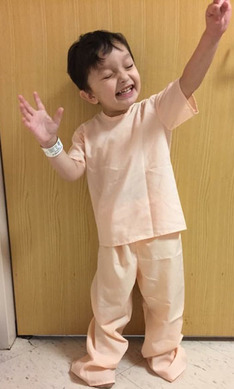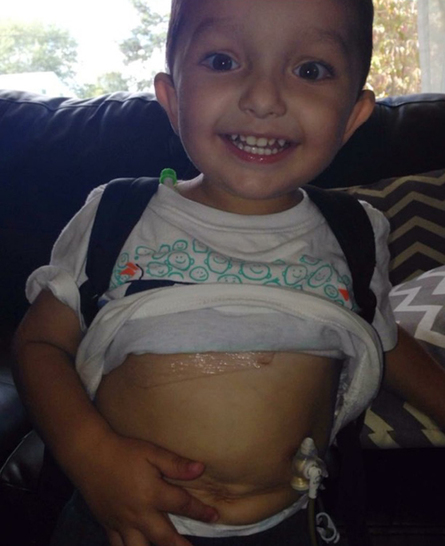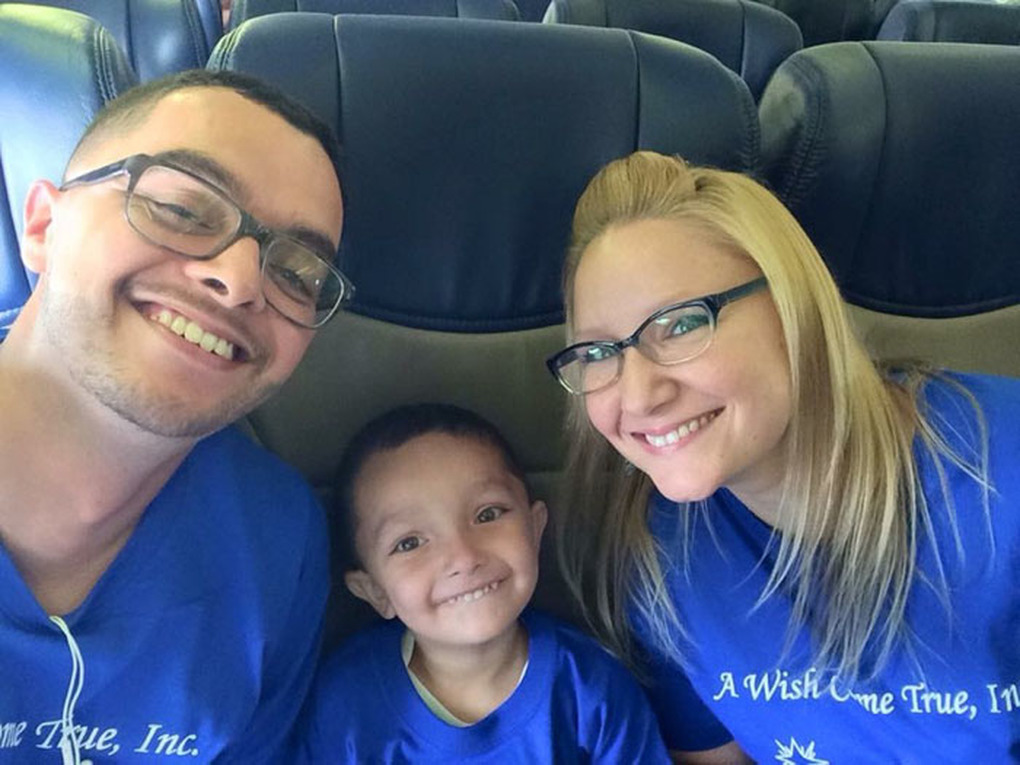Meet Kyrie
|
Nicole White was just 14 weeks pregnant with her son, Kyrie, when doctors delivered the difficult news. An ultrasound revealed that Kyrie was suffering from an in utero birth defect called Gastroschsis. His abdominal wall did not fully close as he developed, and his intestines were on the outside of his body, along with part of his stomach.
For the next six months, Nicole underwent more ultrasounds than she can remember to monitor the health of Kyrie’s intestine. Each day was filled with anxiety for Nicole and her husband, Garrick, both of who work at Rhode Island Hospital. Their minds constantly raced between the possibilities of the “good” and “bad” outcomes shared by doctors. Six days after Kyrie was born in April 2012, he underwent emergency surgery at Hasbro Children’s Hospital to remove the majority of his small intestine and the insertion of a feeding tube and central line. The procedure left tiny Kyrie with Short Bowel Syndrome. |
|
“April 23, 2012 is a day we will never forget—we didn’t know if Kyrie was going to survive the surgery,” recalls Nicole. “And once it was over, we were scared Kyrie may not live beyond the age of 2 because of his condition, but the amazing pediatric surgery team as Hasbro told us that wasn’t going to be the case.”
After spending the first 3 months of his life in our hospital, Kyrie went home in July. It would be short-lived. Kyrie’s journey remained difficult, and he returned to Hasbro Children’s Hospital after just four short months of being home. In 2013, Kyrie needed a gastrostomy tube revision to help alleviate some of the difficulties he was having with handling feedings. It was then that the surgeon had discovered Kyrie’s intestine had grown and was responding well to the total parental nutrition (TPN) and lipids (fat) treatment he was receiving. 2014 was a difficult year for Kyrie and the White family. He was admitted to Hasbro Children’s Hospital nearly every month, and that September had his second major surgical procedure. Because Kyrie vomited multiple times a day for the first two-and-a-half years of his life, doctors performed a serial transverse enteroplasty (STEP) to lengthen the amount of his bowel able to absorb nutrients. Not only did the procedure stop Kyrie’s vomiting, surgeons created a belly button for the young boy after he was born without one. |
Now approaching his 4th birthday, Kyrie has made the type of progress his mother calls a “miracle.” While he still relies on a central line and feeding tube for nutrients, Kyrie has begun to eat some foods orally and is getting stronger by the week. But above all, Kyrie is a “fighter” whose welcoming smile and eyes touch the lives of everyone who meets him and learns his story.
“Kyrie began conquering his illness the moment he was born and hasn’t slowed down since; he has amazed his entire care team and done things his doctors have never seen before,” says Nicole. “It all comes back to how fortunate we are to have a hospital like Hasbro Children’s in our own backyard and how unbelievable and supportive everyone there has been throughout our entire journey—Kyrie’s caregivers have truly become like family.”
“Kyrie began conquering his illness the moment he was born and hasn’t slowed down since; he has amazed his entire care team and done things his doctors have never seen before,” says Nicole. “It all comes back to how fortunate we are to have a hospital like Hasbro Children’s in our own backyard and how unbelievable and supportive everyone there has been throughout our entire journey—Kyrie’s caregivers have truly become like family.”
Photos courtesy of Hasbro Children's Hospital






